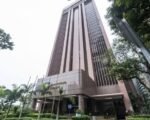Thailand has announced a significant initiative to curb banking activities linked to Myanmar’s arms trade. This move comes in response to a report highlighting the role of Thai banks in facilitating transactions for Myanmar’s military regime. The Thai government plans to establish a task force to oversee financial institutions and prevent transactions that could contribute to human rights violations. This initiative aims to address international concerns and reduce the Myanmar military’s ability to procure arms through Thai banks.
The Thai government has taken a proactive step by forming a task force to monitor and regulate banking transactions linked to Myanmar’s arms trade. This task force will work closely with the Bank of Thailand and the Anti-Money Laundering Office to ensure that financial institutions comply with international sanctions and conduct enhanced due diligence. The goal is to prevent Thai banks from being used as conduits for arms purchases that could fuel ongoing conflicts and human rights abuses in Myanmar.

The task force’s formation follows a report by the United Nations’ special rapporteur on human rights in Myanmar, Tom Andrews, which exposed the involvement of Thai banks in financing arms deals for the Myanmar military regime. Andrews praised Thailand’s decision, emphasizing the importance of cutting off financial channels that enable the junta to continue its oppressive actions. This initiative is seen as a crucial step towards aligning Thailand’s banking practices with international human rights standards.
Thai banks, particularly Siam Commercial Bank, have been identified as key players in facilitating over $100 million in transactions for Myanmar’s military procurement in the fiscal year 2023. The task force will scrutinize such transactions and ensure that banks adhere to strict compliance measures to prevent further involvement in arms-related deals. This move is expected to enhance transparency and accountability within Thailand’s banking sector.
Impact on Myanmar’s Military Regime
The establishment of the task force is likely to have significant implications for Myanmar’s military regime. By tightening regulations and monitoring banking transactions, Thailand aims to disrupt the financial networks that support the junta’s arms purchases. This could limit the regime’s ability to acquire weapons and military supplies, thereby weakening its capacity to carry out attacks on civilian targets.
International sanctions have already led to a reduction in the Myanmar regime’s arms purchases through the global financial system. The shift of arms-related banking from Singapore to Thailand was a response to these sanctions. However, with Thailand now taking steps to curb such transactions, the regime may face challenges in finding alternative financing options. This could impact its ability to sustain military operations and maintain control over the country.
The Thai government’s actions are also expected to send a strong message to other countries in the region. By demonstrating a commitment to preventing human rights abuses and adhering to international sanctions, Thailand sets a precedent for regional cooperation in addressing the crisis in Myanmar. This could encourage other nations to take similar measures and collectively work towards ending the junta’s oppressive rule.
Challenges and Future Prospects
While the formation of the task force is a positive development, it also presents several challenges. Ensuring effective implementation and enforcement of regulations will require close coordination between various government agencies and financial institutions. The task force will need to develop robust mechanisms for monitoring transactions and identifying potential violations. This will involve leveraging advanced technologies and data analytics to detect suspicious activities.
Moreover, the task force will need to navigate potential resistance from within the banking sector. Some financial institutions may be reluctant to comply with stringent regulations due to concerns about operational disruptions and potential loss of business. The government will need to engage with banks and provide clear guidelines to ensure smooth implementation of the new measures. Building trust and cooperation between regulators and financial institutions will be crucial for the success of this initiative.
Looking ahead, the task force’s effectiveness will depend on its ability to adapt to evolving challenges and stay ahead of emerging threats. Continuous monitoring and periodic reviews of the regulatory framework will be necessary to address any gaps and ensure that the measures remain relevant. The Thai government must remain vigilant and committed to upholding human rights and preventing the misuse of its banking system for illicit activities.








